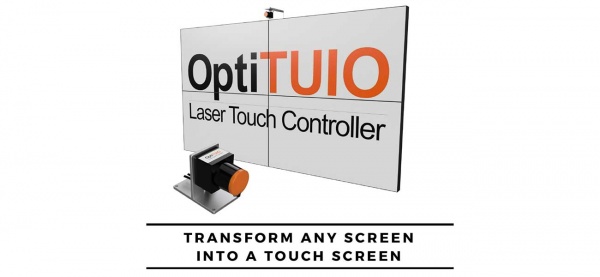Difference between revisions of "OptiTUIO Manual"
(→Introduction) |
(→Introduction) |
||
| Line 3: | Line 3: | ||
[[File:OptiTUIO big website.jpg|600px]] | [[File:OptiTUIO big website.jpg|600px]] | ||
| − | {{ot}} | + | {{ot}} is a tool to calibrate optical LIDAR sensor devices. With {{ot}} it is possible to use laser contour |
| + | scanners like the Leuze ROD4plus, Hokuyo sensors or the Sick LMS models for controlling any number of | ||
| + | applications. {{ot}} generates and detects unlimited touch points which then can be detected and processed | ||
| + | by compatible applications and devices. | ||
| + | {{ot}} has 3 different output modes, TUIO, Mouse and Windows Touch. | ||
| + | That means that any application which understands TUIO, Mouse or Windows Touch can get controlled with | ||
| + | {{ot}}. With our solution you literally transform any flat surface into a multitouch surface. | ||
| + | 5 | ||
==Features== | ==Features== | ||
Revision as of 06:13, 16 March 2019
Contents
- 1 Introduction
- 2 Features
- 3 System and hardware requirements
- 4 Installation
- 5 Setup & Calibration
- 6 Licensing
- 7 FAQ=
Introduction
OptiTUIO™ is a tool to calibrate optical LIDAR sensor devices. With OptiTUIO™ it is possible to use laser contour scanners like the Leuze ROD4plus, Hokuyo sensors or the Sick LMS models for controlling any number of applications. OptiTUIO™ generates and detects unlimited touch points which then can be detected and processed by compatible applications and devices. OptiTUIO™ has 3 different output modes, TUIO, Mouse and Windows Touch. That means that any application which understands TUIO, Mouse or Windows Touch can get controlled with OptiTUIO™. With our solution you literally transform any flat surface into a multitouch surface. 5
